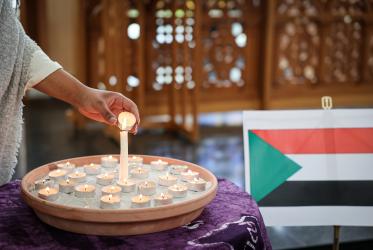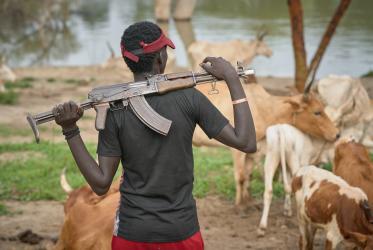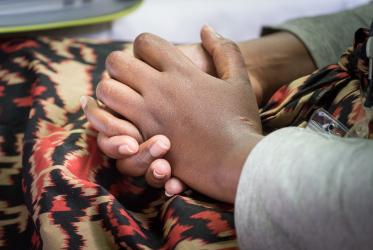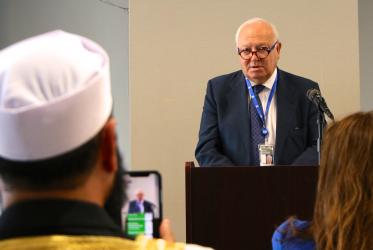Displaying 1 - 20 of 62
Sudanese church leaders express hope that new pact will end war
08 October 2020
South Sudan Church leaders welcome new cabinet
15 March 2020
WCC well-represented in Religions for Peace leadership
07 October 2019
Worshipping safely: UN, faith communities unite to prevent violence
20 September 2019
Dr Saïd Ailabouni: God is on the side of rejected, oppressed, occupied
12 September 2019













